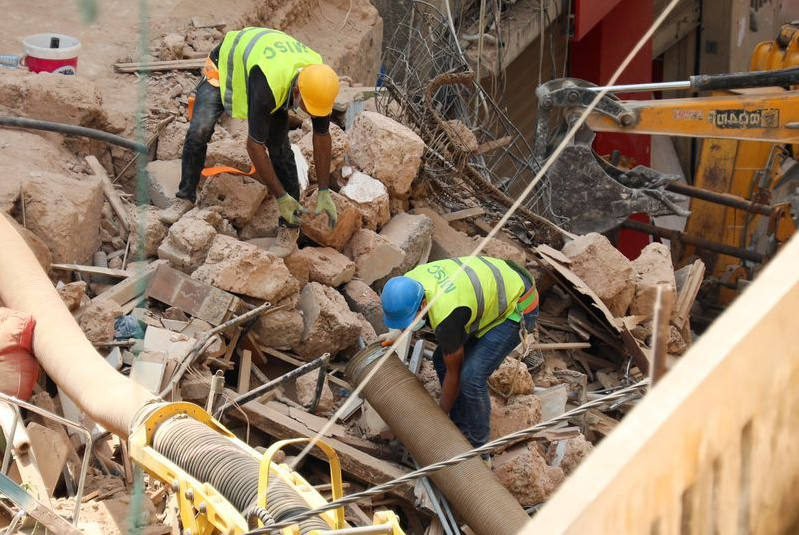Rescue efforts were made by volunteers and a specialist team from Chile since Thursday after their sensors picked up signs of breathing and heat within the rubble of buildings that collapsed during the catastrophic Beirut explosion a month ago. On Saturday, Francisco Lermanda, the head of volunteer rescue group Topos Chile, declared that there were no signs of life on the building and that the “signal or “heartbeat” detected by their equipment were breaths of fellow rescuers already inside the building. The search was done between the residential districts of Gemmayze and Mar Mikhael, the areas that were hardest hit by the explosion. Parts of the city are still being cleared of rubble and glass.
Read: Ammonium Nitrate: Reason Behind Beirut’s Tragic Explosion
ABC News: “Unfortunately, today, we can say that there’s no life inside of the building,” Francisco Lermanda announced.

ABC News disclosed that Beirut inhabitants claims that signs of life have again been detected in the rubble Saturday morning.
But the Chilean search team has again come up empty after a desperate search inside of a collapsed building in the Gemmayze neighborhood of Beirut, one month after an Aug. 4 blast leveled the entire area surrounding the city’s port.
“Unfortunately, today, we can say that there’s no life inside of the building,” the head of the team, Francisco Lermanda, said at a press conference. “Despite that, the protocols must continue for leaving the whole zone secure inside and outside. … We want to tell you that we want to continue with our protocols so we can dismiss the presence of anybody inside the building. Today we made the last action.”
The team made a tunnel and had two women rescuers go down so they can finally be certain that there was really no one alive on the building.

Fox News: A sniffer dog with a Chilean search-and-rescue team first detected something on the Gemmayzeh Street — one of the hardest hit in the Aug. 4 blast

Fox News correspondent, Brie Stimson reports that a sniffer dog with a Chilean search-and-rescue team first detected something on the Gemmayzeh Street — one of the hardest hit in the Aug. 4 blast — as the team swept that part of the city. Then using audio detection equipment, the team found what could be a very slow heartbeat – about 19 beats a minute.
The search was briefly suspended for the night Thursday night before starting up again Friday but some volunteers worked through the night.
Rescue workers used cranes, a bulldozer and their bare hands in the dangerous and delicate rescue effort.
Rescuers acknowledged it’s unlikely someone could survive underneath a demolished building for a month but refused to be deterred from the effort.








